Stories
Trails Carolina Death List: Understanding the Tragedies
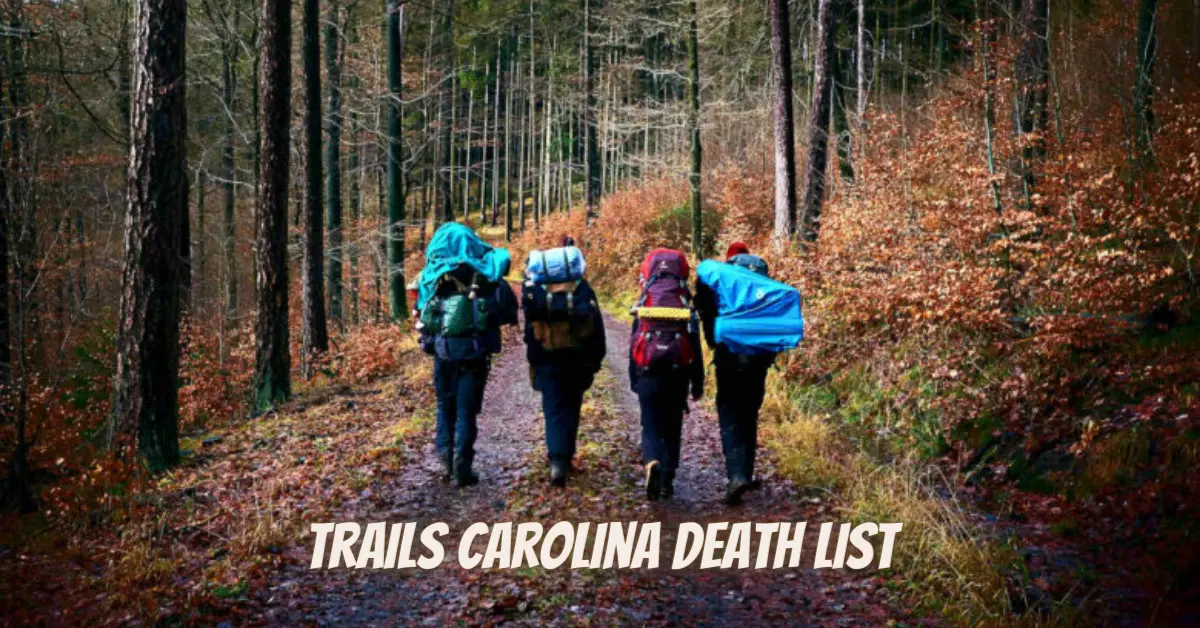
Trails Carolina Death List nestled in the serene landscapes of the Nantahala National Forest, has long been regarded as a beacon of hope for troubled adolescents seeking transformation and healing. However, recent tragedies have cast a shadow over its reputation, sparking debates and concerns surrounding what has come to be known as the.
It’s crucial to approach this topic with sensitivity and understanding, recognizing the complexities inherent in wilderness therapy programs. While Trails Carolina has helped many individuals navigate through their challenges and emerge stronger, incidents involving participants like Alec Lansing, Katelyn Haruko, Sergey Blashchishen, and Caleb Jensen have brought to light the need for a deeper examination of safety protocols and ethical considerations.
- What Is Trails Carolina Death List?
- Understanding Trails Carolina
- Incidents and Controversies
- Case Studies of Tragic Incidents
- Claims of Mistreatment and Inattentiveness
- Safety Measures and Oversight
- Impact on Participants and Families
- Trails Carolina’s Approach to Wilderness Therapy: Balancing Rewards and Hazards
- Narratives of Adversities Experienced at Trails Carolina – Shaping Public Perception
- Legal and Ethical Considerations
- Industry Responses and Reforms
- Parental Guidance and Decision-making
- Supervising Wilderness Therapy Camps
- Frequently Asked Questions
- Conclusion
What Is Trails Carolina Death List?
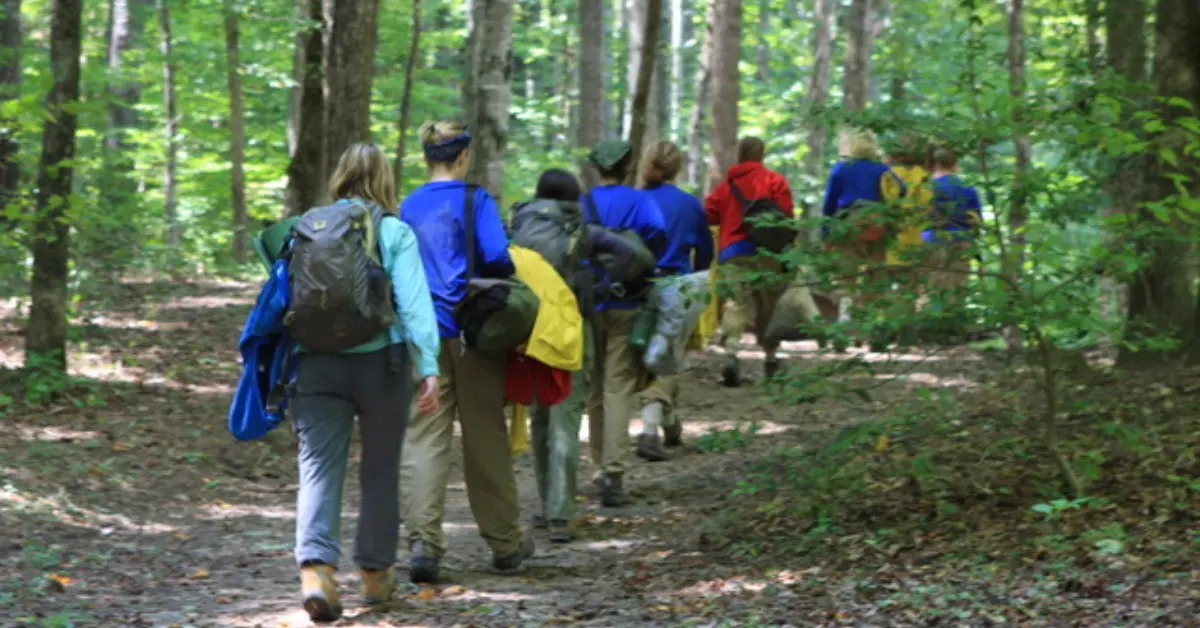
Discussions surrounding the incidents listed in the Trails Carolina death list have often piqued curiosity, occasionally shrouding the narrative in somber tones of morbidity and tragedy. Contrary to these perceptions, Trails Carolina remains a sanctuary for troubled adolescents seeking personal growth and healing, offering a transformative journey reconnecting with nature and fostering resilience amidst adversity.
The untimely demise of Alec Lansing at the age of 17 during a camping expedition organized by Trails Carolina in the Nantahala National Forest serves as a poignant reminder of the inherent risks associated with wilderness therapy programs. His tragic passing, attributed to hypothermia after becoming separated from the group, prompted significant scrutiny of safety protocols within such programs.
Nevertheless, Trails Carolina has responded to this tragedy with proactive measures aimed at enhancing participant safety as their paramount concern. Through diligent efforts, they have implemented various improvements to safeguard the well-being of individuals embarking on therapeutic journeys under their guidance.
Regrettably, former staff members associated with the Trails Carolina death list have raised allegations of physical and emotional mistreatment, including the use of physical restraints. However, substantiating these claims may pose challenges. Despite these concerns, numerous former employees recount positive experiences at Trails Carolina, attributing the program’s potential for life-saving impact to its positive influence.
Understanding Trails Carolina
Trails Carolina isn’t just a wilderness therapy program; it’s a sanctuary where troubled youth embark on transformative journeys of self-discovery. With a blend of experiential therapy and clinical programming, Trails Carolina aims to provide personalized rehabilitation in a nurturing environment. Participants engage in outdoor activities, explore nature’s wonders, and receive therapeutic support tailored to their unique needs.
At the heart of Trails Carolina’s mission lies a commitment to participant well-being and growth. The program is designed to instill resilience, foster positive behavioral changes, and cultivate a sense of empowerment in its participants. Under the guidance of experienced therapists and outdoor experts, individuals are encouraged to confront their challenges head-on and emerge stronger on the other side.
Incidents and Controversies
Tragic incidents have occurred within the Trails Carolina community, sparking controversy and raising important questions about safety and oversight. While the program strives to provide a safe and supportive environment, incidents like the deaths of Alec Lansing and others have prompted scrutiny and debate.
It’s essential to acknowledge the pain and loss experienced by the families affected by these incidents while also recognizing the complexities involved. Trails Carolina has faced allegations of mistreatment and inadequate supervision, leading to calls for increased regulation and transparency within the wilderness therapy industry.
Case Studies of Tragic Incidents
The stories of Alec Lansing, Katelyn Haruko, Sergey Blashchishen, and Caleb Jensen serve as poignant reminders of the challenges and risks associated with wilderness therapy programs. Each case is unique, yet they all highlight the need for improved safety measures and ethical considerations within the industry.
Alec Lansing’s Death
Alec Lansing’s tragic passing has sparked renewed interest in wilderness therapy programs like Trails Carolina, following his unfortunate demise during an excursion into the Nantahala National Forest. Lansing, accompanied by Trails Carolina staff and fellow campers, embarked on a journey on November 10, 2014. However, he became separated from the group, leading to an extensive search effort that lasted hours, with support from the Jackson County Sheriff’s Office. Sadly, on November 12, Lansing’s remains were discovered near the forest, the victim of hypothermia, as determined by autopsy reports. His struggles with melancholy, a recent breakup, and anxiety medication only compounded the situation.
In the wake of this tragedy, Lansing’s family mourns his untimely loss, finding solace in the support of their community. Condolences flooded Trails Carolina’s website from concerned families and friends. In response, the camp issued a heartfelt statement expressing condolences and reaffirming its commitment to providing safe and transformative experiences for all young people in their programs. Despite the challenges posed by the dense forest cover, which complicated the search efforts, the camp expressed gratitude to local agencies for their assistance, including helicopter support.
The loss of Alec Lansing underscores concerns about the safety of wilderness therapy programs, yet Trails Carolina emphasizes its role in guiding teens through life’s challenges, offering a supportive environment where they can discover themselves and overcome obstacles. Despite the tragic outcome, Trails Carolina remains dedicated to its mission of healing and transforming the lives of mental health families through outdoor therapy in North Carolina.
Katelyn Haruko’s journey at Trails Carolina
Originating from a tumultuous background in an unforgiving town, Katelyn Haruko defied societal norms of delicacy and femininity. Renowned for her resilience, she fiercely protected her inner circle, often resorting to physical confrontations to defend them. At one point, she found herself entangled in the grip of drugs and gang activity until fate led her to the Trails program. It was here that she stumbled upon a semblance of serenity, marking the beginning of a remarkable transformation.
Immersed in the wilderness therapy program at Trails, Katelyn wholeheartedly embraced the challenges it presented. Venturing into the vast expanse of the Utah desert alongside an all-female group, she adapted to a rustic lifestyle, where a simple tarp served as their bathroom facility. With meager resources at their disposal, including a solitary roll of toilet paper per week, they relied on nature’s provisions such as sticks and leaves for personal hygiene, demonstrating resilience and resourcefulness in maintaining their well-being amidst the rugged terrain.
Sergey Blashchishen’s untimely death
Tragedy struck the quiet town of Parkrose, Oregon, as 16-year-old Sergey Blashchishen lost his life to heatstroke during a hiking expedition organized by the Sage Walk Wilderness School. His sudden passing has sent shockwaves through the community, prompting an investigation into the circumstances surrounding his demise, which is being treated as a potential homicide. Sergey’s collapse on a trail near Hampton, marked by symptoms of extreme fatigue and vomiting blood, culminated tragically as he ceased to breathe and became unresponsive.
This heartbreaking incident sheds light on the risks inherent in wilderness education programs for adolescents. Sergey’s death joins a somber list of four other teenagers who lost their lives during wilderness hikes in recent years, each succumbing to different hazards such as hyperthermia, head trauma, and asphyxiation. Despite the positive impact of outdoor schools, these tragedies have cast doubt on their safety protocols and procedures.
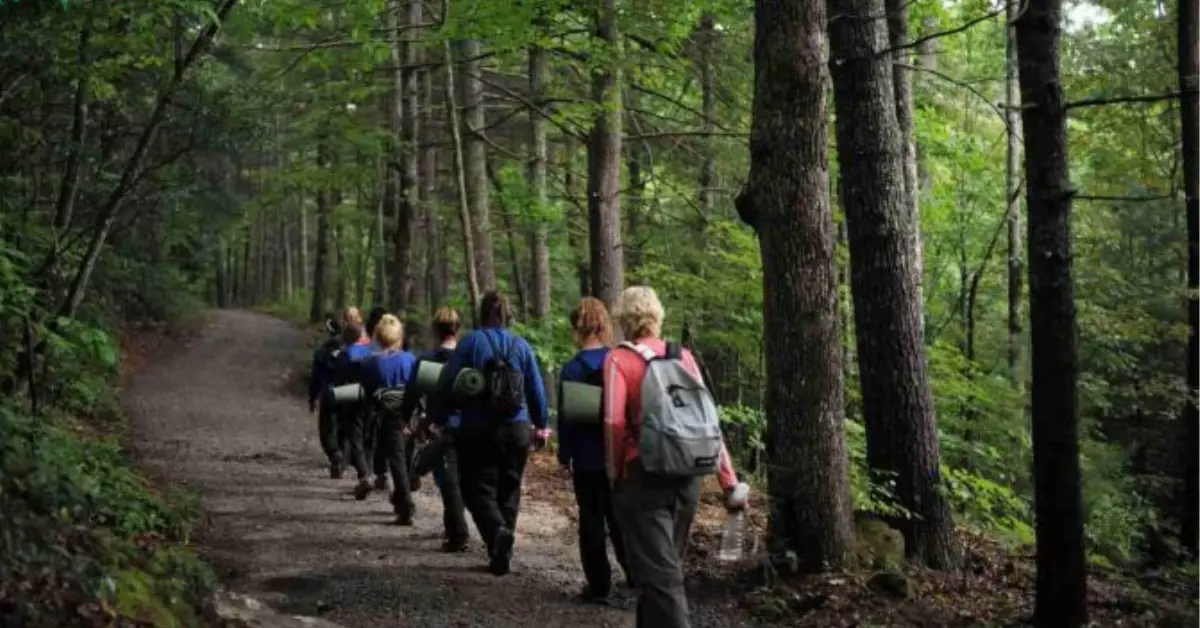
As investigators delve into the circumstances leading to Sergey’s passing, scrutiny falls on the care provided by the wilderness school staff. Disturbing details emerge, including Sergey being taken from his home without parental consent and allegedly receiving inadequate nutrition, with a diet consisting of only granola and oatmeal for breakfast. Reports suggest that staff dismissed Sergey’s complaints of dizziness and exhaustion during the hike, raising serious concerns about their responsiveness to student welfare.
The investigation focuses on the adequacy of nutrition and medical attention provided to Sergey before and during the hike. As a result, the wilderness school has suspended its operations in northern Lake County pending the investigation’s outcome, with the Bureau of Land Management also revoking their permit to prioritize student safety. Sergey’s grieving parents have taken legal action, engaging representation to pursue a wrongful death lawsuit against the wilderness school, seeking answers and accountability in the wake of their devastating loss.
Caleb Jensen’s story
The Trails Carolina outdoor program was envisioned as a pathway for Caleb Jensen to rebuild his life after his time in juvenile detention. However, his sudden passing raised serious concerns about the program’s safety measures and effectiveness, tarnishing its reputation in the process.
Caleb’s story resonates with many parents. Despite facing behavioral challenges, his love for nature blossomed through activities like forestry and football during his time at Philomath High School. However, his transition to Trails Academy didn’t yield the expected results, prompting multiple appeals from the program to his mother for assistance in addressing his issues.
In a poignant letter to his mother, Caleb expressed feeling “broken and shattered,” desperately seeking her support. Tragically, mere days after pouring out his heart in this letter, Caleb succumbed to an undiagnosed staph infection near Montrose, Colorado.
His demise was attributed to methicillin-resistant Staph aureus, discovered in a distressing situation—found in a sleeping bag soiled with urine and feces. In response, Caleb’s mother initiated legal action against Alternative Youth Adventures.
Despite the extensive first-aid training and vigilance on medical matters among program staff, they deny any responsibility for Caleb Jensen’s tragic death, emphasizing the lack of evidence implicating their involvement. However, the incident underscores the need for continued scrutiny and improvement of safety protocols within wilderness therapy programs.
Claims of Mistreatment and Inattentiveness
Over time, disturbing reports have emerged regarding alleged mistreatment and neglect within Trails Carolina wilderness programs. Former participants have come forward with harrowing accounts of their experiences, detailing instances of harsh discipline, isolation, inadequate nourishment, and insufficient medical attention.
According to numerous testimonies, staff members reportedly resorted to extreme measures such as excessive physical restraints and arduous hikes as punishment for minor infractions. Some claim to have endured prolonged periods of forced confinement in cramped tents with meager provisions as disciplinary measures.
Worryingly, there are allegations of inadequate medical care, with former students asserting that injuries and illnesses were often left untreated due to limited access to medical professionals or alleged misdiagnoses. Additionally, some participants claim to have been denied necessary medications or essential items like eyeglasses during their time in the program.
Parents have voiced their dismay, alleging that they were misled about the nature of the program and were unaware of the challenging conditions their children would face. Some even allege being deprived of communication with their children for extended periods, exacerbating their concerns.
Trails Carolina vehemently denies these allegations, insisting that their methods are designed to promote character development through demanding outdoor experiences. While they acknowledge the unconventional nature of their approach, they maintain that their practices adhere to ethical standards. However, government investigations have encountered challenges in substantiating or refuting these claims due to limited evidence and oversight of private programs.
This controversy underscores the importance of thorough research and scrutiny before enrolling children in such programs. Parents are urged to maintain open communication with their children and to seek programs with proper oversight and accountability measures in place to ensure their well-being and safety.
Safety Measures and Oversight
In response to these tragic incidents, Trails Carolina has implemented rigorous safety measures and oversight protocols to ensure participant well-being. From enhanced staff training to improved emergency readiness, the program is committed to upholding the highest standards of safety and care.
Oversight and regulation within the wilderness therapy industry have also been scrutinized in the wake of these incidents. While Trails Carolina Investigation remains dedicated to providing transformative experiences for its participants, ongoing efforts to improve safety and accountability are essential for the well-being of all involved.
Impact on Participants and Families
The incidents at Trails Carolina have undoubtedly had a profound impact on participants and their families. From feelings of grief and loss to questions about the effectiveness of wilderness therapy, the emotional toll of these tragedies cannot be overstated.
It’s essential to provide support and resources for individuals and families navigating through these challenging times. Trails Carolina remains committed to supporting its community and fostering healing and growth in the aftermath of these incidents.
Trails Carolina’s Approach to Wilderness Therapy: Balancing Rewards and Hazards
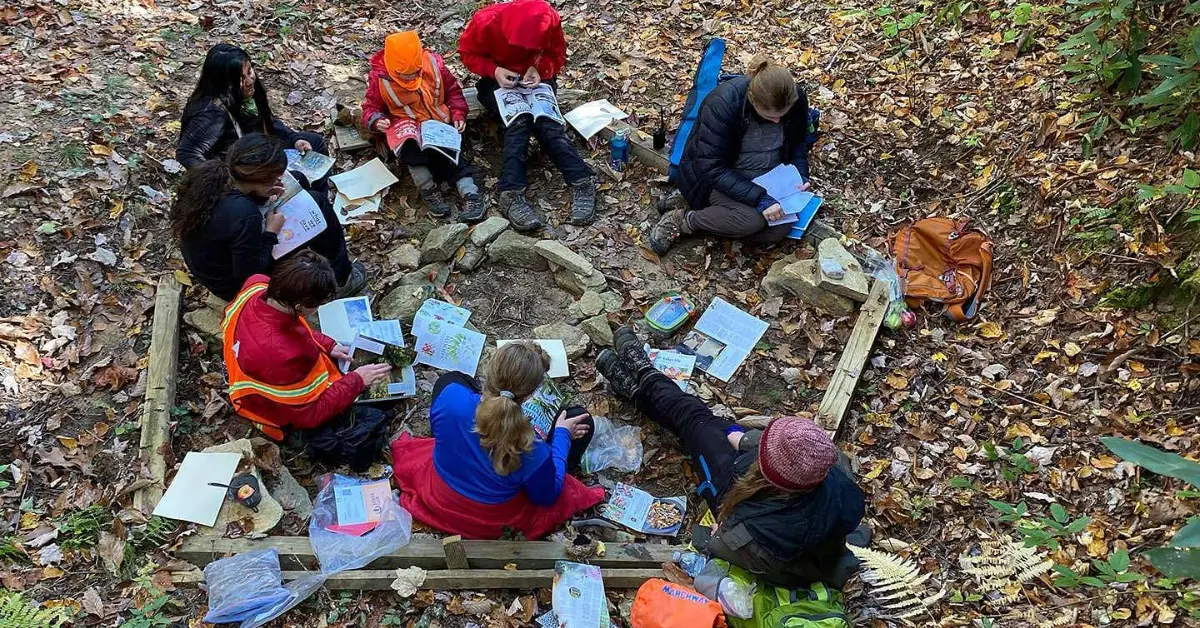
The recent controversies surrounding Trails Carolina serve as a stark reminder of the urgent necessity to reevaluate the landscape of wilderness therapy programs. Ensuring the well-being and security of participants should be of utmost importance, and programs failing to meet rigorous standards should face consequences beyond monetary sanctions.
For parents considering wilderness therapy as an option for their children, thorough deliberation and exhaustive investigation are imperative. Reputable programs must adhere to transparent guidelines, establish open lines of communication with parents, and demonstrate a track record of tangible successes.
Narratives of Adversities Experienced at Trails Carolina – Shaping Public Perception
The emergence of unsettling reports from Trails Carolina has significantly influenced public perceptions surrounding wilderness therapy programs. Through the amplification of survivor testimonies on social media platforms, these distressing narratives have garnered widespread attention, sparking a growing demand for increased oversight, enhanced transparency, and greater accountability throughout the industry.
The impact of the Trails Carolina Death incident has instigated a period of introspection within the wilderness therapy community, prompting a critical reassessment of methodologies and a renewed commitment to upholding ethical standards. Industry leaders are recognizing the imperative for comprehensive reforms, advocating for improvements in staff training, the implementation of robust reporting procedures, and the promotion of transparent communication between programs and families.
Legal and Ethical Considerations
Legal actions and investigations following these incidents have brought to light important ethical considerations within the wilderness therapy industry. From ensuring proper supervision to providing adequate medical care, the well-being of participants must always be prioritized.
Trails Carolina remains committed to transparency and accountability, working closely with regulatory authorities to address any concerns and implement necessary reforms. By upholding the highest standards of ethics and integrity, Trails Carolina strives to rebuild trust and confidence within its community.
Industry Responses and Reforms
The wilderness therapy industry as a whole has responded to these incidents with a renewed focus on safety and accountability. From enhanced training for staff to increased oversight and regulation, efforts are underway to prevent similar tragedies in the future.
Trails Carolina is actively involved in these industry-wide initiatives, collaborating with other wilderness therapy programs and regulatory agencies to share best practices and implement reforms. By working together, the industry can create safer and more effective programs for all participants.
Parental Guidance and Decision-making
For parents considering wilderness therapy programs for their children, navigating through these challenges can be daunting. It’s essential to ask questions, seek information, and trust your instincts when evaluating programs.
Trails Carolina remains dedicated to providing transparent and informative guidance for parents, offering resources and support to help them make informed decisions. By empowering parents with knowledge and understanding, Trails Carolina strives to build trust and confidence in its programs.
Supervising Wilderness Therapy Camps
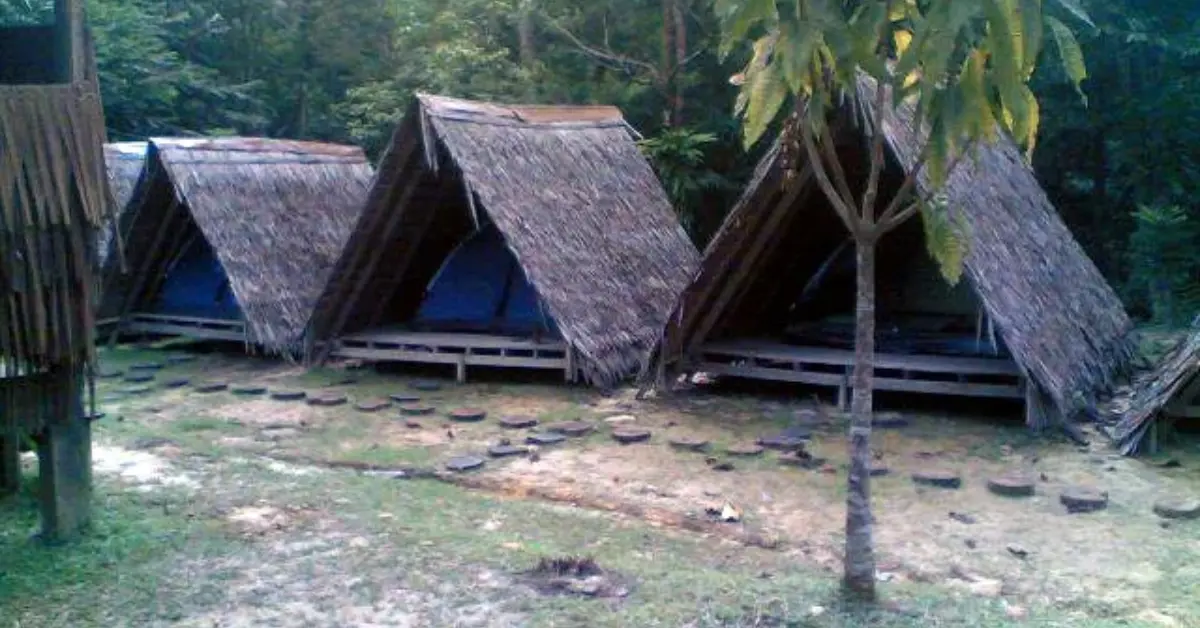
Following the Trails Carolina tragedy, there has been a growing outcry for stricter regulation of wilderness therapy programs. Critics argue that these programs currently operate with minimal oversight, resulting in a lack of accountability. They stress the importance of transparency and ethical standards to ensure the true benefits of such programs. Families considering wilderness treatment are urged to prioritize enrolling in programs with robust safety measures in place.
The death of Alec Lansing at Trails Carolina wilderness therapy camp has reignited concerns regarding the regulation of similar programs. Lansing tragically succumbed to hypothermia near the location where he went missing during a Trails Carolina expedition in November 2014.
In 2021, Trails Carolina was found to have violated multiple state regulations regarding staff training and emergency preparedness, according to a review conducted by the Department of Health and Human Services. An autopsy revealed that Lansing suffered a shattered hip and ultimately died from hypothermia resulting from a fall from a tree. DHHS investigators concluded that Trails Carolina could have prevented his death by taking prompt action.
Trails Carolina, situated in North Carolina’s Nantahala National Forest, offers outdoor adventure and wilderness therapeutic boarding school programs. Participants experience round-the-clock outdoor living with access to full amenities, including staff rotations in the wilderness.
Criticism has been directed at Trails Carolina for its use of physical restraint and isolation rooms as disciplinary measures. Former students have reported instances of unauthorized treatments during their time in the program.
Despite DHHS citations for infractions, Trails Carolina’s most recent inspection was conducted in June, over a year after Alec Lansing’s disappearance. Deficiencies were found in medication delivery and protocols for isolation and physical restraint.
Frequently Asked Questions
What is the Trails Carolina Death List?
The Trails Carolina Death List is a compilation of tragic incidents involving fatalities associated with the Trails Carolina wilderness therapy program.
How many deaths are associated with Trails Carolina?
There have been multiple deaths associated with Trails Carolina, though the exact number may vary depending on the sources.
What are the causes of the deaths on the Trails Carolina Death List?
The causes of deaths on the Trails Carolina Death List vary, including hypothermia, accidents, and other medical emergencies.
Are there any ongoing investigations regarding the deaths?
Yes, there have been investigations into some of the deaths associated with Trails Carolina to determine the circumstances and potential contributing factors.
Has Trails Carolina implemented any changes or reforms following the deaths?
Trails Carolina has made efforts to address safety concerns and implement changes to improve their programs, though specific details may vary.
How has the Trails Carolina Death List impacted public perception of wilderness therapy programs?
The Trails Carolina Death List has raised questions about the safety and efficacy of wilderness therapy programs, leading to increased scrutiny and calls for better regulation and oversight.
Conclusion
In conclusion, the “Trails Carolina Death List” controversy has sparked important conversations and reflections within the wilderness therapy community. While tragic incidents have occurred, Trails Carolina remains committed to its mission of providing transformative experiences for troubled youth.
By prioritizing safety, accountability, and ethical considerations, Trails Carolina is working to rebuild trust and confidence within its community. Through collaboration, transparency, and ongoing efforts to improve, the wilderness therapy industry can continue to provide valuable support and healing for those in need.
Stories
Trails Carolina Death: Everything you need to know
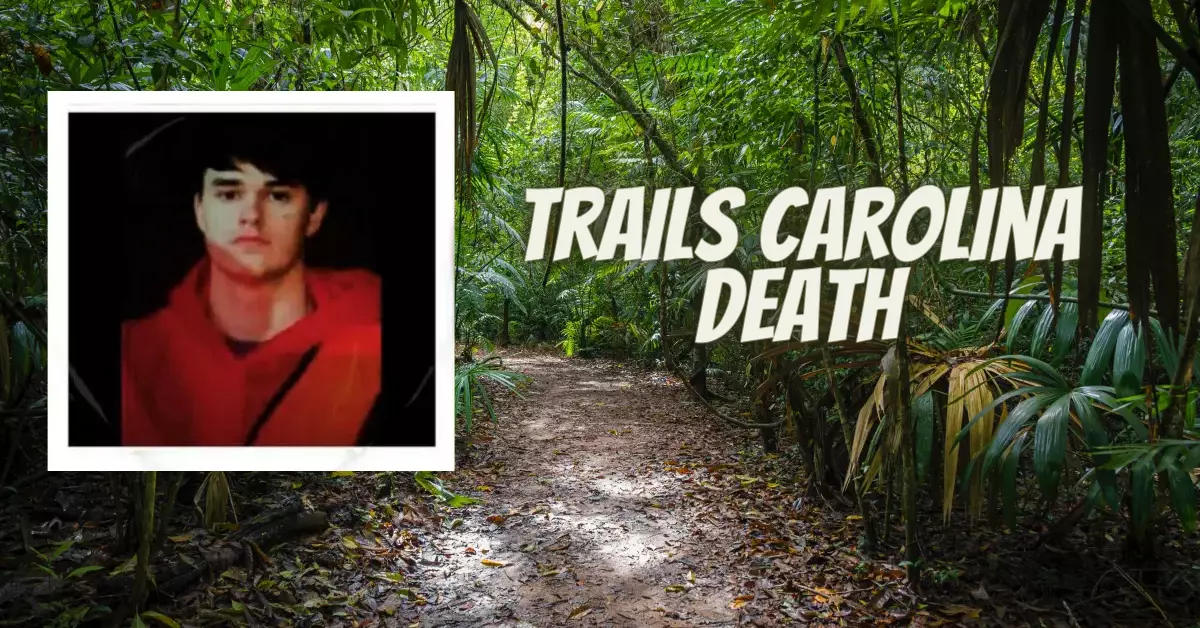
Introduction
Trails Carolina, nestled in the heart of North Carolina’s Nantahala National Forest, has long been a beacon of hope for troubled teens seeking transformation through its wilderness therapy programs. This idyllic setting provides a unique blend of outdoor activities, experiential learning, and clinical interventions, creating a therapeutic environment for adolescents facing behavioral challenges. However, the journey of Trails Carolina Death is marked by controversies and tragedies that have sparked a reevaluation of safety in wilderness treatment programs.
Before delving into the complexities surrounding Trails Carolina, it’s crucial to underscore the significance of safety in wilderness therapy. The very essence of these programs lies in fostering growth and healing, making it paramount to address concerns and work towards a safer and more effective approach for troubled teens.
- Introduction
- Tragedies at Trails Carolina Death
- Allegations and Concerns
- Efforts for Improvement
- Industry-wide Reevaluation
- Legal Actions and Regulatory Involvement
- Positive Experiences and Testimonials
- Additional Fatalities Reported at Trails Carolina
- Overseeing Wilderness Therapy Camps
- Trails Carolina’s Wilderness Therapy Program: Navigating Both Benefits and Risks
- Pursuing Legal Remedies for Fairness and Responsibility
- The Way Forward
- Stories of Challenges at Trails Carolina – Influence on Public Opinion
- Frequently Asked Questions
- Conclusion
Tragedies at Trails Carolina Death
Trails Carolina, despite its picturesque landscapes, faced profound tragedies that left a lasting impact. The deaths of Alec Lansing, Sergey Blashchishen, and Caleb Jensen underscored the importance of examining safety protocols and triggered widespread attention.
Alec Lansing’s unfortunate demise during a camping expedition in 2014 shook the Trails Carolina community. The serene landscapes witnessed the heartbreaking incident where Alec, separated from the group, succumbed to hypothermia exacerbated by a shattered hip. This tragedy prompted investigations and shed light on safety concerns, emphasizing the need for regulatory changes.
Tragedy struck again with Sergey Blashchishen’s passing due to heatstroke during a hiking expedition. The incident raised questions about nutrition, medical attention, and overall safety measures in wilderness education for adolescents. Legal actions ensued, with Sergey’s parents advocating for accountability in outdoor therapy programs.
The abrupt death of Caleb Jensen added to the safety questions surrounding Trails Carolina. Despite the program’s intent to help Caleb recover from his troubled past, concerns arose about its effectiveness in addressing participants’ medical needs. While there’s no direct evidence against the program, Caleb’s passing raised important safety considerations.
Allegations and Concerns
As the community grappled with these tragic incidents, allegations of mistreatment, lack of transparency, and safety concerns surfaced. Parents and former participants voiced grievances, citing emotional manipulation, physical restrictions, and inadequate medical attention. Former staff members reported alleged mistreatment, casting a shadow over Trails Carolina’s reputation.
The accounts of parents and participants who have experienced Trails Carolina firsthand are essential in understanding the complexities of the program. Emotional testimonials highlight the challenges faced by troubled teens and the impact of wilderness therapy on their lives. Former staff members have come forward, shedding light on alleged mistreatment and calling for industry-wide reforms.
Amidst the allegations, verifying claims becomes a challenging task. The nature of wilderness therapy often involves isolated incidents, making it difficult to corroborate accounts. This emphasizes the need for a balanced approach, acknowledging concerns while recognizing the positive experiences reported by others.
Efforts for Improvement
Trails Carolina took proactive steps to address safety issues head-on in the aftermath of these tragedies and concerns. The program recognized the need for improvement and implemented crucial changes, with participant safety becoming its foremost priority.
Trails Carolina’s commitment to addressing concerns extended beyond rhetoric. Tangible improvements, ranging from enhanced safety protocols to more rigorous staff training, were put into effect. The program acknowledged its challenges and took responsibility for fostering positive outcomes.
Despite the challenges, numerous former employees attested to positive experiences at Trails Carolina. The program’s commitment to safety and transformative experiences was reiterated through statements acknowledging the tragedies and reaffirming dedication to mental health families. Trails Carolina remains focused on providing a supportive environment for troubled teens to navigate challenges and find a path toward positive transformation.
Industry-wide Reevaluation
The controversies at Trails Carolina sparked a broader industry-wide reevaluation. Leaders in the field began acknowledging the necessity for comprehensive reforms, recognizing the need for better staff training, improved reporting protocols, and fostering transparent communication between programs and families.
In response to the tragedies and concerns, there has been a collective call for reforms within the wilderness therapy industry. Advocates are pushing for better industry practices, emphasizing the importance of stringent safety standards, and advocating for ethical operations. The aim is to protect participants, hold programs accountable, and ensure the ethical operation of such programs.
Leaders in the industry have recognized the need for improved staff training and reporting protocols. Transparent communication between programs and families is also being emphasized to build trust and ensure that families are well-informed about the nature of wilderness therapy programs.
Legal Actions and Regulatory Involvement
Following Alec Lansing’s tragic death, the North Carolina Department of Health and Human Services (DHHS) conducted a thorough investigation into Trails Carolina. The findings revealed multiple state infractions, including inadequate participant supervision and staff restraint training. Despite facing fines, Trails Carolina continues its operations.
The legal consequences and regulatory changes in the industry underscore the need for stringent measures to ensure participant safety and hold programs accountable for their actions. Trails Carolina, despite the fines, continues to operate, prompting further discussions on the effectiveness of fines alone in preventing future missteps.
The ongoing discussions surrounding the effectiveness of fines in preventing future incidents highlight the need for a more comprehensive approach to regulation. Advocates argue that fines, while a step in the right direction, may not be sufficient in preventing potential instances of mistreatment. The industry faces a pivotal moment where regulatory changes are crucial for ensuring the safety and well-being of participants.
Positive Experiences and Testimonials
Amidst the controversies and tragedies, there are reports of positive outcomes and testimonials from former participants and families. Some individuals credit Trails Carolina with better mental health management, improved family communication, and a positive life direction. These positive experiences offer a nuanced perspective on the program’s impact, emphasizing the complexity of assessing the overall effectiveness of wilderness therapy programs.
Former participants and their families share stories of transformation and growth, highlighting the positive impact Trails Carolina has had on their lives. These testimonials provide insights into the potential for positive outcomes within the program, offering a counterbalance to the challenges and tragedies faced by others.
The nuanced nature of wilderness therapy programs makes evaluating their effectiveness a complex task. Positive outcomes coexist with challenges, emphasizing the need for ongoing assessment, transparency, and improvements. Acknowledging the multifaceted nature of participant experiences is essential for a comprehensive understanding of Trails Carolina’s impact.
Additional Fatalities Reported at Trails Carolina
Trails Carolina launched investigations following another participant’s death, drawing attention to safety risks in wilderness treatment programs for teens. The tragedies reported over the years have amplified concerns about the industry’s practices and the need for mental health awareness and care.
The additional fatalities reported at Trails Carolina have intensified concerns about the overall safety of wilderness therapy programs. The industry faces increased scrutiny as investigations unfold, and the outcomes will likely shape the future of wilderness therapy programs, influencing regulations and pushing for safer practices.
As investigations into additional fatalities unfold, there is a growing awareness of the need for industry-wide changes. The potential impact on future regulations underscores the importance of addressing safety risks and implementing measures that prioritize the well-being of participants in wilderness therapy programs.
Overseeing Wilderness Therapy Camps
The controversies at Trails Carolina have spurred a call for tougher regulation of wilderness therapy programs, emphasizing the importance of transparency and ethics in program operations. The focus on oversight aims to ensure that wilderness therapy programs prioritize participant safety and adhere to ethical standards in their operations.
Industry leaders and advocates recommend a careful selection process for parents considering wilderness treatment for their children. Safe programs should uphold transparent policies, maintain consistent communication with parents, and exhibit a proven history of positive outcomes. The emphasis is on creating a structured and supportive environment for participants.
The increased focus on oversight is critical to ensuring participant safety in wilderness therapy programs. Regulatory bodies and industry leaders are advocating for more robust oversight mechanisms, including better staff training, improved reporting protocols, and clear communication channels between programs and families.
Trails Carolina’s Wilderness Therapy Program: Navigating Both Benefits and Risks
Trails Carolina’s controversies highlight the delicate balance between the benefits and risks of wilderness therapy programs. While tragic incidents have raised concerns, positive outcomes reported by some participants showcase the potential for transformative experiences. Navigating this delicate balance is crucial for the industry to evolve and ensure the well-being of troubled youth.
Amidst the controversies and challenges, there are accounts of transformative experiences that have positively impacted participants. These stories emphasize the potential for growth, healing, and positive change within the wilderness therapy setting. The industry’s challenge is to navigate these complexities, ensuring that programs like Trails Carolina prioritize safety while providing meaningful experiences for troubled youth.
The inherent challenge for wilderness therapy programs lies in prioritizing safety while delivering meaningful experiences for participants. Striking the right balance requires continuous evaluation, improvements in safety protocols, and a commitment to ethical practices. Trails Carolina’s journey serves as a reminder of the ongoing work needed to refine these programs for the benefit of troubled teens.
Pursuing Legal Remedies for Fairness and Responsibility
The concerning allegations and tragic incidents at Trails Carolina have prompted demands for heightened scrutiny and better regulation of wilderness therapy programs. Critics highlight the industry’s perceived lack of robust oversight, allowing programs to function with limited accountability. The industry is at a crossroads, with calls for more rigorous regulations to ensure participant safety and well-being.
After Alec Lansing died in 2021, the North Carolina Department of Health and Human Services (DHHS) investigated Trails Carolina. The Trails Carolina Investigation found multiple state infractions, including insufficient participant supervision and staff restraint training. Despite Trails Carolina facing fines as a consequence, critics persist in advocating for more rigorous regulations, proposing measures such as mandatory incident reporting and licensing requirements to ensure greater accountability and safety standards.
The legal actions and regulatory involvement underscore the need for fairness and responsibility in the wilderness therapy industry. Advocates argue that accountability measures are crucial to prevent potential instances of mistreatment and ensure the safety and well-being of participants. As the industry faces increased scrutiny, the emphasis on accountability becomes a driving force for positive change.
The Way Forward
The deeply saddening fatalities and concerning accusations surrounding Trails Carolina highlight the urgent need for a comprehensive review of wilderness therapy programs overall. Ensuring the safety and welfare of participants should be the primary focus, prompting industry leaders, regulatory bodies, and programs to collaborate on robust and effective solutions.
Moving forward, the primary focus of wilderness therapy programs must be on ensuring the safety and welfare of participants. This requires a collective effort from program providers, industry leaders, and regulatory bodies to establish and enforce stringent safety standards. A commitment to ethical practices and transparent operations is essential for building trust and ensuring the well-being of troubled youth.
For parents considering wilderness therapy for their children, caution and meticulous research are paramount. Esteemed programs should uphold transparent policies, maintain consistent communication with parents, and exhibit a proven history of positive outcomes. The suggestions aim to empower parents to make informed decisions and encourage an active role in their child’s therapeutic journey.
Stories of Challenges at Trails Carolina – Influence on Public Opinion
The unsettling accounts emerging from Trails Carolina have significantly shaped how the public perceives wilderness therapy programs. Survivor testimonies, amplified through social media and various platforms, have brought distressing narratives to widespread attention. These personal stories contribute to a deeper understanding of the challenges participants face and the impact of the wilderness therapy experience on their lives.
As survivor testimonies gain prominence, there’s a rising call for stricter oversight and clearer transparency in the wilderness therapy industry. The public, informed by these narratives, demands greater accountability from programs like Trails Carolina. This shift in public sentiment places added pressure on the industry to address concerns and implement reforms that prioritize participant safety and well-being.
Trails Carolina’s controversies have prompted a self-reflective phase within the wilderness therapy community. Industry leaders and programs are reassessing methodologies and dedicating themselves to upholding the utmost ethical values. This introspective approach aims to restore trust and confidence in wilderness therapy programs, emphasizing transparency, accountability, and a commitment to positive outcomes.
Frequently Asked Questions
What is Trails Carolina, and what kind of programs does it offer?
Trails Carolina is a wilderness therapy program situated in North Carolina’s Nantahala National Forest. It offers outdoor rehabilitation programs for troubled teens, combining experiential therapy and tailored clinical programming.
How has Trails Carolina responded to the safety concerns raised after Alec Lansing’s death?
Trails Carolina has implemented crucial improvements, emphasizing participant safety as their foremost priority. The program has undergone changes to address safety issues and enhance the well-being of participants.
Are there other incidents or fatalities reported at Trails Carolina?
Yes, there have been other reported incidents, including the passing of Sergey Blashchishen and Caleb Jensen. These incidents have prompted investigations, legal actions, and discussions about safety in wilderness therapy programs.
What kind of allegations and concerns have been raised by parents and former participants against Trails Carolina?
Allegations include emotional manipulation, physical restrictions, and inadequate medical attention. Former staff members have reported instances of alleged mistreatment, adding to the controversies surrounding the program.
How has the wilderness therapy industry responded to the controversies at Trails Carolina?
The industry has undergone a self-reflective phase, acknowledging the need for comprehensive reforms. Leaders advocate for better staff training, improved reporting protocols, and transparent communication between programs and families.
What investigations have been conducted by regulatory bodies, such as the Department of Health and Human Services (DHHS)?
The DHHS investigated Trails Carolina after Alec Lansing’s death, finding multiple state infractions. Despite fines, Trails Carolina continues its operations, prompting discussions on the effectiveness of fines in preventing future missteps.
What should parents consider before enrolling their children in wilderness therapy programs like Trails Carolina?
Parents should exercise caution and conduct thorough research. Esteemed programs should uphold transparent policies, maintain consistent communication with parents, and exhibit a proven history of positive outcomes.
How has public opinion on wilderness therapy programs been influenced by the Trails Carolina controversies?
The unsettling accounts and survivor testimonies from Trails Carolina have significantly shaped public perception. There’s a rising call for stricter oversight, clearer transparency, and heightened accountability across the industry.
Conclusion
The tragedies and problems surrounding Trails Carolina have cast a shadow over its operations. The term “Trails Carolina death list” encapsulates a series of unfortunate incidents that have sparked debates regarding wilderness therapy program management and ethics. Alec Lansing’s 2014 death, Sergey Blashchishen’s passing, and Caleb Jensen’s abrupt demise have prompted a critical examination of safety protocols and program effectiveness.
Despite the controversies and tragedies, it is crucial to emphasize the need for careful investigation and due diligence before enrolling a youngster in a wilderness therapy program. The complexities of addressing mental health challenges in a wilderness setting require a thorough understanding of each participant’s unique needs. The industry, parents, and regulatory bodies must work together to create a framework that ensures safety, transparency, and positive outcomes.
Trails Carolina’s controversies should serve as a warning to the entire industry to reevaluate its practices, improve safety measures, and tighten regulations. The experiences at Trails Carolina highlight the dual nature of wilderness therapy, where challenges coexist with the potential for transformative experiences. This call to action aims to reshape the landscape of wilderness therapy, placing a renewed focus on participant safety, ethical practices, and positive therapeutic interventions.
Stories
Trails Carolina Investigation: Navigating Wilderness Wellness

Introduction
Trails Carolina stands amidst the picturesque Blue Ridge Mountains of North Carolina, offering a unique approach to wilderness therapy for troubled youth. Established with a mission to guide personal development and healing, the program has faced both accolades and criticism. This article aims to explore the Trails Carolina investigation, shedding light on the incidents, controversies, safety concerns, and the program’s response.
Wilderness therapy programs hold immense potential for positive impact, but recent incidents at Trails Carolina have raised concerns. Investigating these issues is crucial not only for the families seeking support but also for the broader field of youth intervention programs. Balancing the promise of personal growth with ensuring safety and ethical practices becomes paramount in this exploration.
- Introduction
- What Is Trails Carolina Wilderness Program Death?
- Background of Trails Carolina Investigation
- Trails Carolina Investigation Fatalities
- Incidents and Controversies
- Safety Concerns and Oversight
- Response and Changes
- Media and Public Perception
- Regulatory Landscape
- Lessons and Ethical Considerations
- Frequently Asked Questions
- Conclusion
What Is Trails Carolina Wilderness Program Death?
Trails Carolina once hailed for its wilderness therapy program, has faced a series of distressing incidents, leading to what is now known as the Trails Carolina Horror Stories. These events underscore a troubling pattern of organizational lapses and employee carelessness.
Among the tragic cases is the death of Zachary D’Zurilla in 2013, succumbing to hypothermia during a Trails Carolina trek. While officially attributed to hypothermia, D’Zurilla’s family pointed to potential professional incompetence as a contributing factor. Similarly, in 2016, 16-year-old Madeline Gruen tragically drowned in her tent during a storm. Her history of mental illness and past suicide attempts, documented in family medical records, adds a layer of complexity to her unfortunate demise. In 2019, another participant, 16-year-old Daniel Boyette, met a tragic end, struck by an automobile during a hiking expedition under Trails Carolina’s guidance.
Trails Carolina’s wilderness therapy abuse investigation, initiated in 2008 as an outdoor rehabilitation camp in North Carolina’s Nantahala National Forest, initially garnered attention as a resource for parents seeking assistance for their struggling children. However, the camp faced a severe setback with the passing of 17-year-old Alec Lansing in November 2014. Lansing went missing during a group camping trip, and his discovery two days later, officially labeled as an accident, raised substantial concerns about safety standards within wilderness therapy camps.
Background of Trails Carolina Investigation
Trails Carolina began as an outdoor rehabilitation camp in North Carolina’s Nantahala National Forest, attracting parents seeking assistance for struggling children. With a mission rooted in providing therapeutic experiences in nature, the program aimed to guide troubled youth toward growth and healing.
Initially hailed for its goals, Trails Carolina faced challenges over the years. The program’s reputation came under scrutiny due to a series of tragic events, leading to a comprehensive investigation into its safety protocols and ethical practices.
Trails Carolina Investigation Fatalities
Trails Carolina’s history is marked by the poignant loss of young lives, with four documented deaths casting a somber shadow over the program. Alec Lansing, Ian August, Charles Moody, and William Edward Lee have become symbols of untimely demises that have left lasting impacts.
In the year 2000, tragedy struck when 15-year-old William Edward Lee suffered a severe head injury during a restraint, leading to his untimely death. Two years later, weariness claimed the life of 14-year-old Ian August, and in 2004, 17-year-old Charles Moody tragically asphyxiated while being restrained.
The most recent heartbreak unfolded in 2021 with the disappearance and subsequent death of 17-year-old Alec Lansing during a group trip. His demise, attributed to exposure to the cold, has prompted serious concerns about oversight within the program and its capability to manage participants with risk factors.
An inquiry conducted by the Department of Health and Human Services (DHHS) shed light on critical deficiencies. It revealed inadequate training among Trails Wilderness Program staff to handle situations involving campers who wander off. Furthermore, the inquiry uncovered shortcomings in the camp’s emergency preparedness plan, raising crucial questions about the program’s overall readiness to ensure the safety and well-being of its participants.
Incidents and Controversies
Tragedies, such as the untimely deaths of participants like Zachary D’Zurilla, Madeline Gruen, Daniel Boyette, and Alec Lansing, have cast a shadow on Trails Carolina. These incidents have sparked investigations, allegations, and a reevaluation of the program’s overall effectiveness.
In 2013, Zachary D’Zurilla’s death from hypothermia during a trek under Trails Carolina’s guidance raised questions about professional competence. His family attributed the tragedy to organizational mismanagement and employee carelessness.
Madeline Gruen’s drowning in her tent during a storm in 2016 added to the concerns. Her history of mental illness and previous suicide attempts raised questions about the program’s ability to address the needs of participants with pre-existing conditions.
Tragedy struck again in 2019 when Daniel Boyette, hiking under Trails Carolina’s instruction, was fatally struck by a vehicle. The circumstances surrounding his death raised further inquiries into the safety measures and supervision provided by the program.
The death of Alec Lansing in 2014 during a group camping trip intensified the scrutiny. Despite being officially deemed an accident, Lansing’s case prompted concerns about safety standards and the program’s ability to manage individuals displaying risk factors.
Trails Carolina’s past is marked by historical fatalities, including Ian August’s exhaustion-related death, Charles Moody’s asphyxiation during restraint, and William Edward Lee’s severe head injury during restraint in 2000.
Safety Concerns and Oversight
Serious allegations of abuse, neglect, and the use of excessive force surfaced, exposing oversight and training inadequacies within the program. Former participants and staff claimed instances of physical violence, leading to a reevaluation of safety protocols.
Despite acknowledged improvements by state authorities, lingering doubts persisted regarding the program’s safety protocols. A Department of Health and Human Services (DHHS) inquiry highlighted inadequacies in staff training and emergency preparedness.
The DHHS inquiry into Alec Lansing’s death exposed several violations of state laws by Trails Carolina, emphasizing the need for enhanced training and emergency preparedness. The findings prompted a reevaluation of the program’s functioning.
Response and Changes
In response to growing criticism, Trails Carolina acknowledged the severity of the issues and expressed a commitment to conduct an open assessment of its operations. The program vowed to make necessary modifications, prioritizing participant safety and emotional health.
The aftermath of Alec Lansing’s death led to changes in North Carolina’s regulations governing wilderness therapy camps. DHHS inspections of wilderness treatment programs increased, reflecting a broader effort to ensure the safety of participants.
Trails Carolina faced criticism regarding its hiring and training practices. The program responded by increasing background checks, staff training, and continuous observation to enhance safety measures.
Media and Public Perception
Reports of Trails Carolina Horror Stories surfaced, contributing to negative public perception. Former participants and their families shared distressing accounts of abuse, physical violence, neglect, and emotional mistreatment within the program.
Investigative journalists delved into the allegations, carefully reviewing supporting documentation and conducting interviews with previous participants. Their scrutiny added layer to the ongoing discussions about the safety and effectiveness of wilderness therapy programs.
The public’s reaction to the Trails Carolina investigation varied, with many expressing deep concern over the reported incidents. The program’s response did little to alleviate widespread frustration, particularly regarding its continuation despite a history of safety violations.
Regulatory Landscape
The Trails Carolina investigation prompted a closer look at North Carolina’s regulations governing wilderness therapy camps. The state took steps to address the gaps in oversight and enhance regulatory measures for the safety of participants.
The increase in DHHS inspections highlighted a broader commitment to ensuring the well-being of participants in wilderness treatment programs. The inspections aimed to identify and rectify any shortcomings in safety measures and program functioning.
The Trails Carolina investigation had a ripple effect on the broader landscape of wilderness therapy programs. The increased scrutiny prompted a reevaluation of safety standards and ethical practices across similar programs.
Lessons and Ethical Considerations
The Trails Carolina investigation brought to light the ethical dilemmas inherent in wilderness therapy programs. Balancing the potential for positive impact with the inherent risks requires a thoughtful approach to program design, participant safety, and overall accountability.
While wilderness therapy programs offer unique opportunities for personal growth, the Trails Carolina investigation highlighted the need for a nuanced understanding of the balance between positive impact and inherent risks. Addressing the complexities of mental health and participant safety is paramount.
The Trails Carolina investigation underscores the importance of thoughtful regulation and accountability in the wilderness therapy field. Striking a balance between fostering personal development and ensuring participant safety requires ongoing evaluation and adherence to best practices.
Frequently Asked Questions
Are wilderness therapy programs effective in promoting personal development?
Wilderness therapy programs have shown potential for positive impact, but individual experiences may vary. It’s crucial to thoroughly research and evaluate specific programs to ensure they align with participants’ needs and safety.
How has the Trails Carolina investigation impacted regulations in North Carolina?
The Trails Carolina investigation led to changes in North Carolina’s regulations governing wilderness therapy camps. The state implemented measures to enhance oversight and safety protocols for the well-being of participants.
What steps has Trails Carolina taken in response to the investigation?
Trails Carolina has responded to criticism by acknowledging the issues and committing to an open assessment of its operations. The program has pledged to make necessary modifications, prioritizing participant safety and emotional health.
How can parents ensure the safety of their children in wilderness therapy programs?
Parents should thoroughly investigate the institutions, including safety measures, staff training, and regulatory compliance, before enrolling their children in wilderness therapy programs. Additionally, staying informed and engaged throughout the program is essential.
Conclusion
In conclusion, the Trails Carolina investigation has brought to the forefront the complex landscape of wilderness therapy. While the program aims to assist troubled youth in the scenic Blue Ridge Mountains, recent events have underscored the challenges and ethical considerations inherent in such programs. The tragic incidents and allegations emphasize the need for continuous evaluation, improvement, and a commitment to the safety and well-being of participants.
You May Also Like: Great Western Buildings Lawsuit: Everything you need to know
-

 Technology8 months ago
Technology8 months agoCrack the Code: Optimizing Your SEO Efforts with Advanced Rank Tracking Techniques
-

 Fashion7 years ago
Fashion7 years agoThese ’90s fashion trends are making a comeback in 2017
-

 Lifestyle11 months ago
Lifestyle11 months agoThe Style Box UK Fashion Lifestyle Blog
-

 Entertainment7 years ago
Entertainment7 years agoThe final 6 ‘Game of Thrones’ episodes might feel like a full season
-

 Celebrities9 months ago
Celebrities9 months agoLuc Coulier: Age, Bio, Weight, Height, Family, Career, Net Worth and More
-

 Fashion7 years ago
Fashion7 years agoAccording to Dior Couture, this taboo fashion accessory is back
-

 Entertainment7 years ago
Entertainment7 years agoThe old and New Edition cast comes together to perform
-

 Sports7 years ago
Sports7 years agoPhillies’ Aaron Altherr makes mind-boggling barehanded play





